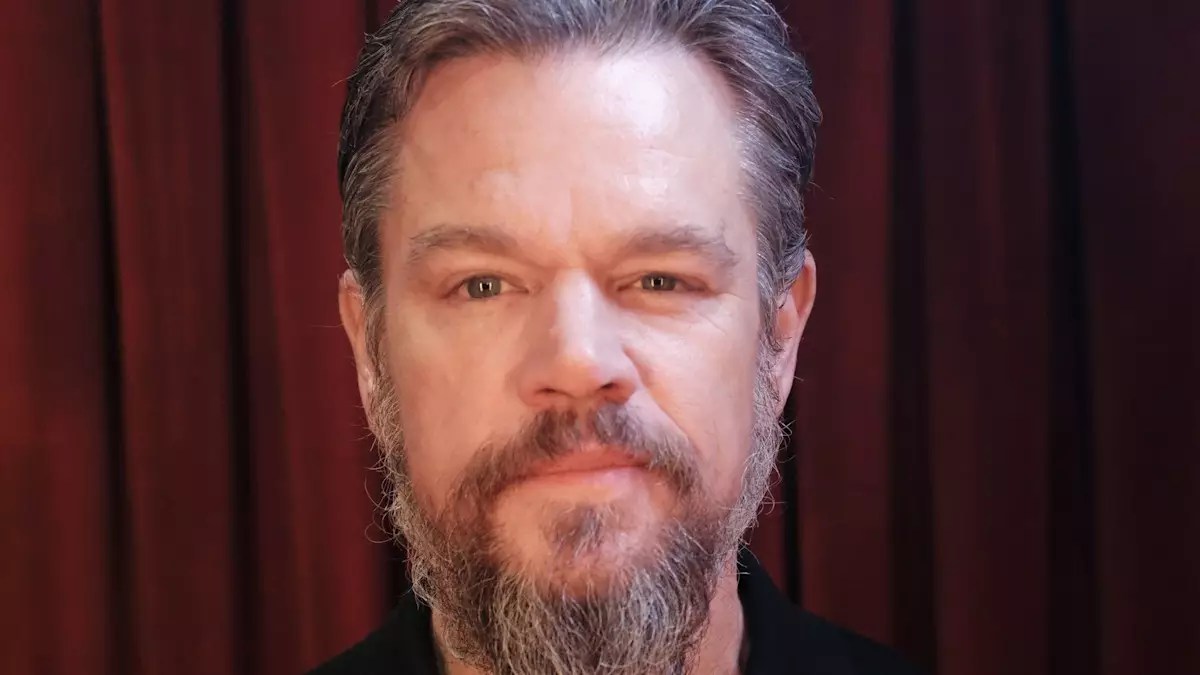The cinematic world has once again been set ablaze with excitement as Christopher Nolan, renowned for his intricate storytelling and formidable visual style, begins filming on his much-anticipated adaptation of Homer’s epic poem, *The Odyssey*. This film promises not only to attract avid fans of classic literature but also those who revel in breathtaking visuals and compelling narratives. With an ensemble cast that reads like a who’s who of contemporary Hollywood—featuring the likes of Matt Damon, Anne Hathaway, Tom Holland, and Lupita Nyong’o—audiences are primed for an extraordinary journey through ancient mythology.
What truly excites me about this project is its casting. Matt Damon, stepping into the role of Odysseus, brings a gravitas that resonates with the legendary king’s complex persona. His physical transformation, including the full gray beard that he flaunted at SXSW, is indicative of not just an actor preparing for a role but an artist deeply committed to embodying a character shrouded in legend. This dedication feeds an audience’s hunger for authenticity, setting the stage for a nuanced performance.
The Marvel of Transformation: Damon’s Devotion
Damon’s preparation for the role is nothing less than impressive. Gone are the days when an actor prepared half-heartedly for a part. In the modern cinematic landscape, audiences desire genuineness, and it seems Damon is well aware of this paradigm shift. The photos circulating online depict not only a rugged physicality but also a marked commitment to portraying Odysseus as both a warrior and a thinker. The shirtless shots showcasing his chiseled physique speak volumes about his dedication to fitness—a hallmark of today’s leading men.
Such physical transformations often yield powerful reactions from fans and critics alike. Social media has already exploded with comments celebrating his return to the spotlight. Remarks such as “Damon better make some space on his mantle for his Best Actor Oscar” highlight the high expectations riding on his shoulders. The mere thought of Damon as a modern Odysseus is dazzling—a collision of classical literature and Hollywood superstardom that could set new benchmarks for adaptations of ancient works.
Impact of Nolan’s Vision
Christopher Nolan’s reputation for advancing the art of filmmaking cannot be overstated. Following the monumental success of *Oppenheimer*, which scooped up seven Oscars and set new standards for biographical storytelling, *The Odyssey* stands poised to make waves not just at the box office but within critical circles. Nolan’s meticulous approach to storytelling, coupled with a stellar cast, suggests that this adaptation could become a landmark in both cinematic history and literature as it explores themes of heroism, loyalty, and the human experience.
The evolution of heroic narratives in modern cinema is fascinating to observe, especially in how filmmakers filter these tales through contemporary values. Nolan’s work often pushes boundaries, and the sheer ambition of *The Odyssey* reflects a desire to connect timeless themes to our current societal ethos. Rather than simply retelling a story, it’s about re-contextualizing it, allowing new generations to grapple with its relevance.
All Eyes on Relationships Behind the Scenes
The connections among the high-profile cast also provide an intriguing undercurrent to the film’s production. Ben Affleck’s reflections on Matt Damon’s career choices are noteworthy, illustrating a brotherly bond underscored by mutual respect. As Affleck notes, Damon’s emphasis on directing excellence as a guiding principle underscores a thoughtful approach to directorial collaboration—an essential element in crafting a successful film. This synergy among collaborators amplifies the final product’s quality, as artists with shared visions create a cohesive narrative.
From Affleck’s endorsement of Nolan’s artistic precision to the palpable excitement surrounding the cast’s camaraderie, *The Odyssey* is shaping up to be much more than just another film. It heralds a diverse collaboration that intertwines the old and new, perhaps enriching our understanding of mythology while unlocking narratives pertinent to modern viewers.
Transformations, both physical and collaborative, envelop *The Odyssey* in a narrative fabric that could indeed redefine what cinematic adaptations can achieve. As anticipation builds ahead of its July 2026 release, one can’t help but feel that this expedition into the epic realm of Homer’s work promises to be a masterpiece, poised to captivate and inspire audiences in ways yet unseen.


Leave a Reply